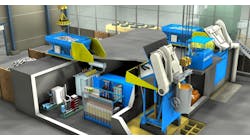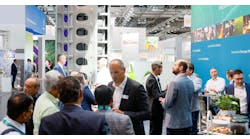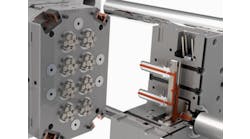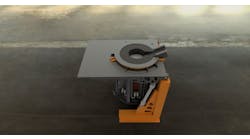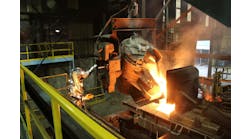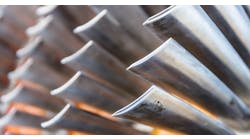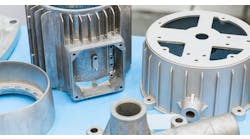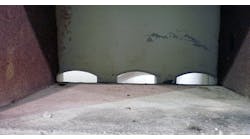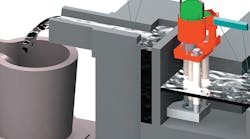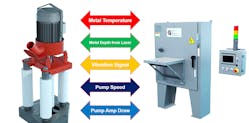As we navigate through what feels like a “new normal” in manufacturing, it may now be more important than ever to find ways to improve processes so that all team members can focus their attention on the highest-value activities to the organization. We are experiencing rising costs and limited availability of people to work in our facilities. It’s clear we all need to develop new ideas to solve the unique problems this situation is causing, as it certainly seems persistent. Some of the best ideas may come from technology that we already have available, so we must “rethink” how to deploy it into this new area of need.
The case I want to highlight is the “pain point” that comes from the age-old need to empty a furnace, for routine maintenance or scheduled downtime, or for an alloy change. Historically, this has been a manual process mean time lost from the primary production process – in addition to being a significant safety concern.
A new way to do it. Here is an example of rethinking the use of existing mechanical pump technology created a new way to transfer molten metal and alleviate all the associated pain. Normal operation would see molten aluminum alloy (A-380) transferred by an MMEI Mini Launder transfer pump into ladles and then transported to the casting machines. The process was continuous and designed for high efficiency, and thus the metal level in the furnace was never allowed below 20 inches to keep the pump fully submerged.Periodically, however, the furnace needed to be emptied to allow for routine maintenance or to switch alloys. The existing process was to use gravity, tap out plugs, and sow molds to manage the emptying process. This raised safety concerns for the operators as they were forced to be in the path of the molten aluminum. It might take them several days to empty the remaining 20 inches of molten alloy from a 50,000-lb. furnace, halting production and requiring more than 50 molds to handle the metal drained from the furnace – more than the plant had available, making it necessary to wait as metal cooled and solidified and removed. Clearly a very painful situation, and one that kept scarce labor resources focused on something that was of limited value to the organization.
They needed to avoid emptying into molds, and to get the remaining 20 inches of metal into ladles and into the production flow. This was the opportunity for the new MMEI Raptor Transfer Pump, which is completely portable, quickly submersible, with a variable-speed motor capable of moving 1,100 lbs./minute. It pumps metal out of the furnace down to a level of 5 inches or less, putting all that metal into production. Then, the remaining 5 inches was drained via gravity quickly and easily, leaving the furnace completely empty and ready for maintenance to begin. This solution resolved the safety issue, kept production at normal levels, significantly increased the efficiency of the furnace emptying process (from days to hours), and generated a strong financial return for the metalcaster.
Building on gains. This story demonstrates how finding new techniques for standard manufacturing processes can initiate multiple gains in productivity. In regard to time saved in emptying the furnace, there is also the benefit of reassigning workers to higher-value-generating activities. Depending on the size of the operation it be possible to shift worker away from just cost-saving efforts to revenue-generating activities. This is a nice outcome when both steps can improve a metalcaster’s bottom line.
The change also reduced the operating costs of the aluminum melting operation because it reduced the need for so many sow molds. With today’s disrupted supply chain, any opportunity to lower resource requirements is generally a good one.
Metalcasting operations have many new ideas available to improve standard operations, and tough environments reward those ideas that provide multiple benefits. The recent past has shown how many new ideas have become foundational to future growth. It will be exciting to see how much more we can improve!
Jeff Keller is the CEO of Molten Metal Equipment Innovations. Contact him at [email protected], or visit www.mmei-inc.com
